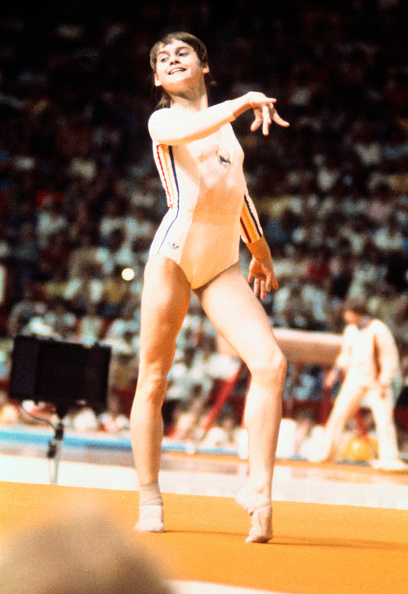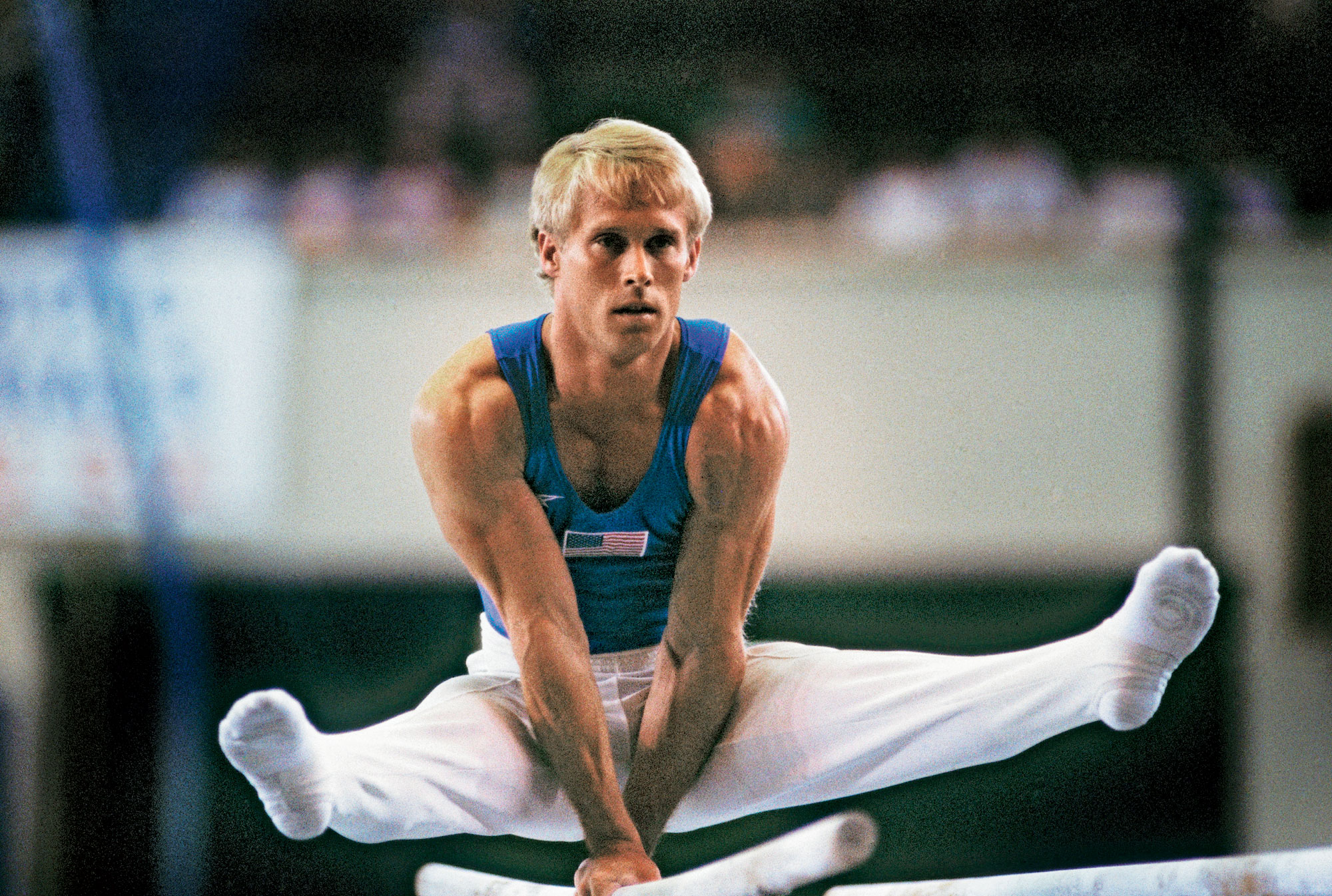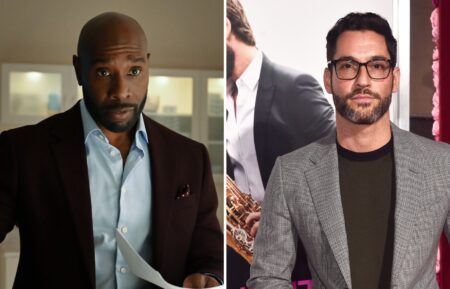Nadia Comaneci and Bart Conner Look Back on Their Magic Olympic Moments

Another power couple is “Flying Down to Rio” for the Olympic Games. What Fred Astaire and Ginger Rogers did for dancing, Bart Conner and Nadia Comaneci did for gymnastics.
Comaneci, of course, was only 14 years old in 1976 when she scored the first perfect 10 in Olympic history, and then added six more 10s for good measure. She was the 1976 all-around champion and also competed in 1980, finishing her career with nine Olympic medals, including five golds, for Romania. Conner is a three-time Olympian and was part of the champion U.S. men’s team in 1984.
He secured an individual gold medal on the parallel bars by chalking up his own perfect 10, and he eventually got the girl too. The pair married in 1996 and now live in Norman, Oklahoma. Their 10-year-old son, Dylan, will accompany them to Rio, where they’ll be studio analysts for Brazilian broadcaster TV Globo. We asked Conner and Comaneci, who became a U.S. citizen in 2001, to talk about their Olympic experiences and who to watch at the Games.

Nadia Comaneci During the 1976 Summer Olympics in Montreal
Bart Conner: I was captivated by the Olympics when I was a kid. My dad really loved what the Olympics symbolized. With three boys in the family who were all into sports, he wanted to teach us about the world coming together in peace and tolerance and acceptance—and at the same time trying like crazy to win. I made my first Olympic team in 1976, and my coach shook my hand and said, “You realize that for the rest of your life, the term Olympian will be used in association with your name.”
Even 40 years later, that is still powerful to me. When I got to the Games, I was really young and overwhelmed by the competition. I walked into the arena and I saw all these people that I had read about in all the books. I was kind of freaked out by it and I didn’t do well.
Nadia Comaneci: When the team was announced, I was at the airport with the entire delegation, a few hundred athletes, and I was asked by the newspaper person, “That’s great you’re going to the Olympics. What do you expect?” I remember I said, “I wish to win a medal and, if it’s possible, to be gold.” I wasn’t going there to win. It wasn’t like I had a plan: “I want to win this, this, this and this.”
I thought I did pretty well—I didn’t think I did great—on my first compulsory routine. I was the last one to compete on uneven bars for my team, so I landed and then I didn’t look at the scoreboard, because the music was playing for us to march to the next event. I heard noise in the arena. I turned my head and I saw the scoreboard, which was 1.00. I looked at one of my teammates, who shook her head and she said, “I think it’s something wrong.” I didn’t know what it was, until they explained the scoreboard was not made to show a 10. It’s great, because it’s been 40 years since that and people are still talking about it.
Conner: Having been world champion in 1979 in parallel bars and the team winning bronze, we had big aspirations for Moscow in 1980. Of course, that fell by the wayside when we boycotted. In 1984, we did our first event, and I felt terrible. I thought, “I can’t believe on the most important day of my life I just don’t feel right.” I felt heavy and lethargic.
On parallel bars, I started feeling lighter and it was like this huge lead weight was lifted off my shoulders, but I literally didn’t come to the realization until later that it was a mild form of shock. It’s not like I hadn’t been through this. A lot of coaches say, “You treat it just like it’s any other meet,” but the athletes know it’s not.

Bart Conner in the 1984 Summer Olympics in Los Angeles.
Comaneci: At the Olympics, everybody wants to see “Who’s the next one?” Every four years, you remember those Olympics by someone or by something that has happened. And it has to be something big or something compelling. Unfortunately, that person will slightly overshadow a lot of the other amazing athletes who will win medals because it’s hard to remember all of them.
Conner: I’ve always said that you can be wealthy by circumstances, or you can be born good-looking by accident, but the only way you get to stand on top of the Olympic podium with a gold medal around your neck is if you worked hard and you earned it. It would be easy to justify a case for the U.S. men to win a team medal in Rio. [Four-time national champion] Sam Mikulak is just a marvelous gymnast, but he still has to figure out that puzzle piece of why he has been inconsistent.
Comaneci: The U.S. women’s team is the favorite for the team gold, but with the format of “three athletes up and three count,” you have to be on, because every mistake counts. In the all-around, I think it’s going to be a head-to-head competition with [world champion] Simone Biles and [defending Olympic gold medalist] Gabby Douglas. Simone has a little bit of an advantage because of her increased difficulty [which is rewarded by the scoring system] on floor and vault. And the beam is always who stays on.—as told to Karen Rosen.
The opening ceremony of the 2016 Summer Olympics airs Friday, August 5, 7:30/6:30c, NBC. For sport-specific schedules (TV and streaming), visit NBCOlympics.com.







